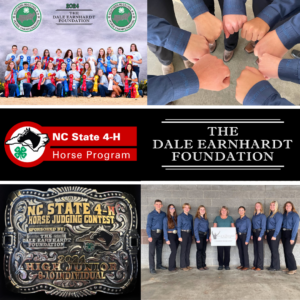
Scholarships Awarded for National 4-H Horse Symposium
NC 4-H Horse Program & The Dale Earnhardt Foundation: Continuing the Legacy Four NC 4-H Members to Attend National Symposium as …

El inglés es el idioma de control de esta página. En la medida en que haya algún conflicto entre la traducción al inglés y la traducción, el inglés prevalece.
Al hacer clic en el enlace de traducción se activa un servicio de traducción gratuito para convertir la página al español. Al igual que con cualquier traducción por Internet, la conversión no es sensible al contexto y puede que no traduzca el texto en su significado original. NC State Extension no garantiza la exactitud del texto traducido. Por favor, tenga en cuenta que algunas aplicaciones y/o servicios pueden no funcionar como se espera cuando se traducen.
Inglês é o idioma de controle desta página. Na medida que haja algum conflito entre o texto original em Inglês e a tradução, o Inglês prevalece.
Ao clicar no link de tradução, um serviço gratuito de tradução será ativado para converter a página para o Português. Como em qualquer tradução pela internet, a conversão não é sensivel ao contexto e pode não ocorrer a tradução para o significado orginal. O serviço de Extensão da Carolina do Norte (NC State Extension) não garante a exatidão do texto traduzido. Por favor, observe que algumas funções ou serviços podem não funcionar como esperado após a tradução.
English is the controlling language of this page. To the extent there is any conflict between the English text and the translation, English controls.
Clicking on the translation link activates a free translation service to convert the page to Spanish. As with any Internet translation, the conversion is not context-sensitive and may not translate the text to its original meaning. NC State Extension does not guarantee the accuracy of the translated text. Please note that some applications and/or services may not function as expected when translated.
Collapse ▲
NC 4-H Horse Program & The Dale Earnhardt Foundation: Continuing the Legacy Four NC 4-H Members to Attend National Symposium as …
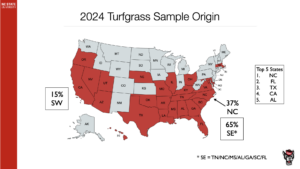
Overall, total turfgrass samples submitted in 2024 to the NC State Turf Diagnostics Lab were 6% lower than samples …
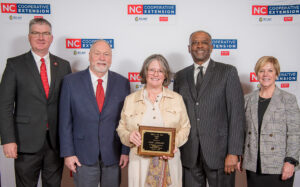
Dr. Ngaire van Eck served as EFNEP Coordinator in North Carolina from 1989 until her retirement in 1997. She …
The IRS recently announced a $0.03 increase for the optional standard mileage rate for business uses in 2025. The …
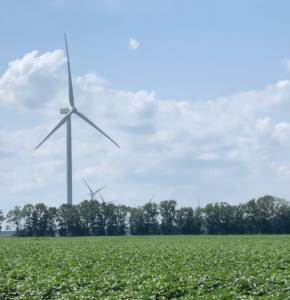
Two renewable energy community input meetings will be held next Monday (February 24) in Perquimans County, and Tuesday (February …
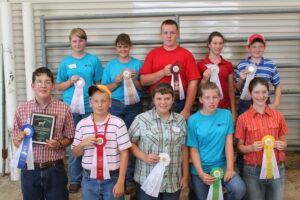
Pictures Senior Divsion SR Overall Ind SR Overall Team SR Reasons Ind SR Reasons Team SR Cattle Ind SR Cattle Team SR Sheep Ind SR Sheep Team SR Meat …
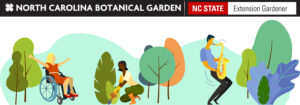
TH2: Program Development Update: This session is now full! If you have taken TH1, you are welcome to register for …
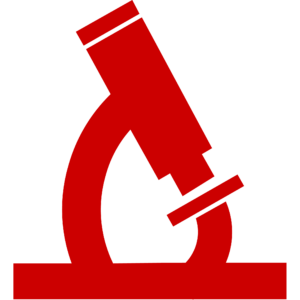
Dr. Clint Stevenson from NC State’s Food, Bioprocessing and Nutrition Sciences Department is hosting a webinar on Feb 28th …

In 2005, the staff and friends of North Carolina Expanded Food and Nutrition Education Program (EFNEP) established an Endowment …
The link below includes critical information and procedures for collecting and submitting cotton seed samples to NCDA for warm …
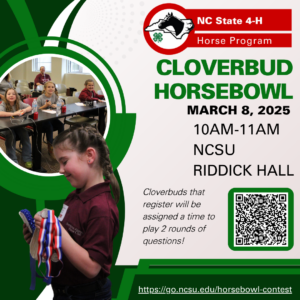
The February 2025 NC 4-H Horse Program Newsletter is now available. This newsletter contains important information about upcoming NC 4-H …
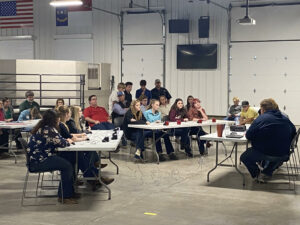
We are excited to continue this program for 2025! Although some contests locations have changed, we still hope so …

Get ready for another exciting year with the NC 4-H Horse Program! We’re gearing up for a jam-packed calendar …
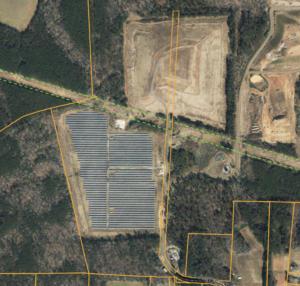
As part of the continuing effort to gather community feedback on solar development opportunities for landowners, and how these …
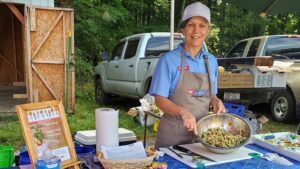
There are 101 Extension local centers across North Carolina, staffed by experts in agriculture, youth development, food and nutrition, …

The Minnie Miller Brown Award is the highest honor given to an EFNEP Educator working in EFNEP. The award …